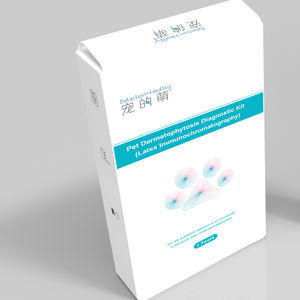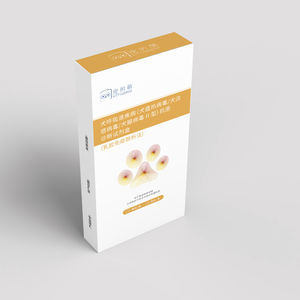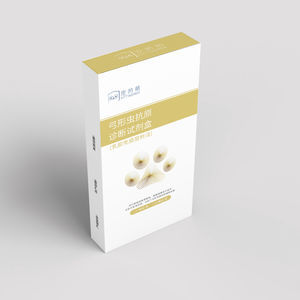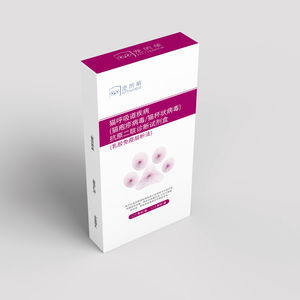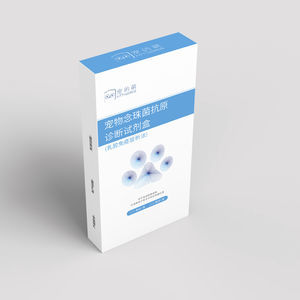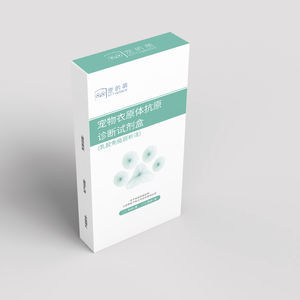
- Laboratory
- Laboratory medicine
- Feline rapid test
- Nanjing Liming Bio-products Co., Ltd.

- Company
- Products
- Catalogs
- News & Trends
- Exhibitions
Veterinary rapid test 500370for dogsfor catsfor antigens
Add to favorites
Compare this product
Characteristics
- Application field
- veterinary
- Patient type
- for dogs, for cats
- Tested parameter
- for antigens
- Micro-organism
- for dermatophytes
- Sample type
- urine, blood, stool
Description
This product is designed for the rapid screening of pet samples from cats, dogs and birds for Candida, Sphingomonas dermatitidis and Cryptococcus antigens, and can be used to assist in the diagnosis of Candida, Sphingomonas dermatitidis and Cryptococcus infections in pets.
Dermatological diseases are common in cats, dogs and birds, and Candida, S. dermatitidis and Cryptococcus are the most common fungi causing dermatological diseases in pets.
Candida infects the oral mucosa, oesophagus and crop of birds. The main symptoms are anorexia, crop obstruction, oral leukoplakia, food reflux and weight loss. Candida infections can occur in dogs and cats with chronic illnesses such as diabetes, kidney disease, or antibiotic use. Candida infections in dogs and cats include skin infections, oral and respiratory mucosal infections, intestinal infections, and urinary tract infections. Candida oral infections can cause fungal stomatitis, intestinal infections can cause diarrhoea and blood in the stool, and urinary tract infections can cause difficulty urinating, frequent urination, and blood in the urine. Ultrasound testing will also often observe fungal clumps in the bladder.
Dermatophytes infect the skin of dogs and cats, causing superficial skin infections. The asexual stage of dermatophytes belongs to the subphylum Hemiptera and the sexual stage belongs to the subphylum Ascomycota. Dermatophytes can be classified into three genera based on the characteristics of the macroconidia. Trichophyton: rod-shaped macroconidia; Microsporum: shuttle-shaped macroconidia; and Epidermophyton: pestle-shaped macroconidia.
Catalogs
No catalogs are available for this product.
See all of Nanjing Liming Bio-products Co., Ltd.‘s catalogsOther Nanjing Liming Bio-products Co., Ltd. products
Veterinary Diagnostics
Related Searches
- Assay kit
- Solution reagent kit
- Blood rapid diagnostic test
- Diagnostic reagent kit
- Rapid lateral flow test
- Immunoassay rapid diagnostic test
- Molecular test kit
- Cassette rapid diagnostic test
- Respiratory infection test kit
- Rapid virus test
- Serum rapid diagnostic test
- Histology reagent kit
- Plasma rapid diagnostic test
- Infectious disease rapid diagnostic test
- Whole blood rapid diagnostic test
- COVID-19 assay kit
- Rapid respiratory infection test
- Real-time PCR test kit
- Urine rapid diagnostic test
- Clinical reagent kit
*Prices are pre-tax. They exclude delivery charges and customs duties and do not include additional charges for installation or activation options. Prices are indicative only and may vary by country, with changes to the cost of raw materials and exchange rates.


